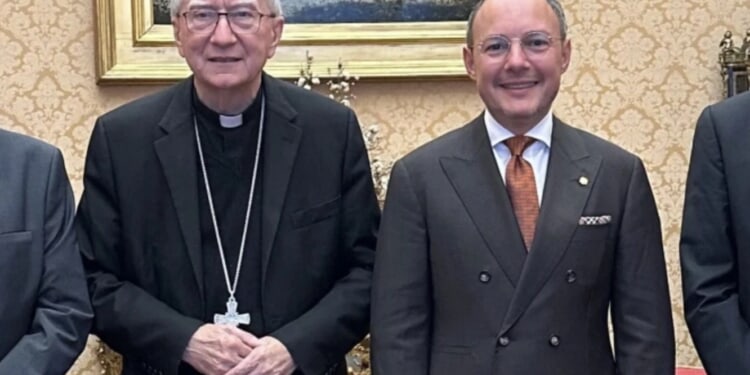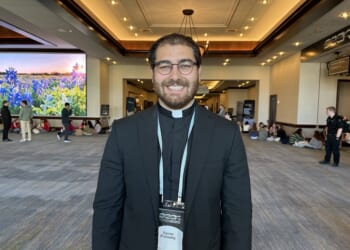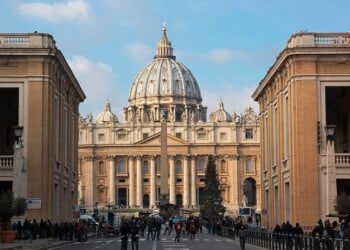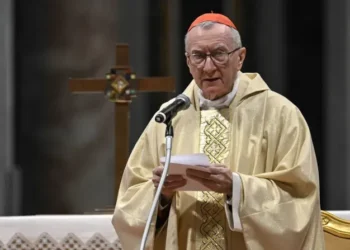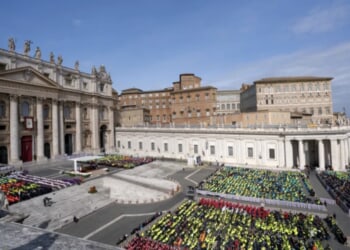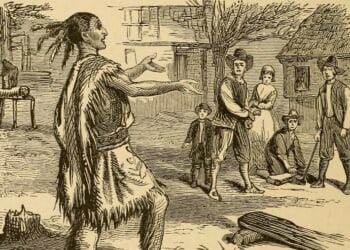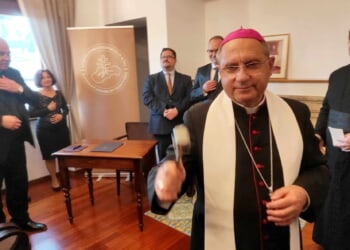ACI Prensa Staff, Oct 30, 2025 /
10:09 am
A delegation from the Andorran government met on Oct. 22 with Vatican Secretary of State Cardinal Pietro Parolin to continue discussions on the decriminalization of abortion in Andorra, a country whose co-heads of state are the bishop of the Diocese of Urgell in Spain, Josep-Lluís Serrano Pentinat, and French President Emmanuel Macron.
The boundaries of the diocese also encompass Andorra, which is a small principality situated in the Pyrenees mountains between France and Spain, roughly halfway between Toulouse and Barcelona.
The prime minister of Andorra who heads the executive branch, Xavier Espot, and the minister of institutional relations, Ladislau Baró, traveled to the Vatican, accompanied by the country’s ambassador to the Holy See, Carlos Álvarez.
The meeting, according to the Andorran government, took place “within the framework of the institutional dialogue between the two parties to address the process of decriminalizing abortion in Andorra.”
According to the executive branch of the small country, “both delegations reaffirmed their shared commitment to continue working constructively with the aim of having a draft legislative text in the coming months.”
At the same time, it was acknowledged that “this is a matter of great legal, institutional, and social complexity, requiring careful technical development,” and therefore both parties “maintain their desire to find a solution.”
This complexity relates to the Andorran Constitution, under which the bishop of Urgell and the president of France serve as co‑princes who sanction and enact the laws approved by the General Council (Parliament) with the required countersignature and within eight to 15 days of approval. The Constitution also allows the co‑princes to request a prior ruling on constitutionality before sanctioning a law.
“Decrimnalization” typically means that abortion remains a crime but only after a specific number of weeks of pregnancy. Prior to that time frame it is unpunishable.
Abortion in the Andorran penal code
Title II of the Andorran penal code deals with “crimes against prenatal human life,” distinguishing between “nonconsensual,” “consensual,” and “negligent” abortion.
Article 107 on nonconsensual abortion establishes “a prison sentence of four to 10 years and disqualification from practicing any health care profession for up to 10 years.”
The same penalties apply if consent has been obtained “through violence, intimidation, or abuse of the victim’s vulnerability” due to age, disability, or similar circumstances. Furthermore, the article establishes that even attempted (unsuccessful) abortion is punishable.
Article 108, referring to consensual abortion, provides for whoever perpetrates the crime “a prison sentence of three months to three years and disqualification to exercise any health profession for a period of up to five years.”
In addition, the code states that “the woman who causes her abortion or allows another person to cause it will be punished with a light sentence,” typically less than three months.
With regard to abortion caused by negligence, Article 109 establishes a brief sentence or a fine of up to 30,000 euros ($34,760) and disqualification for a period of three years if the abortion is the result of “professional negligence.”
In this section it is also specified that “the pregnant woman will not be punished for this offense.”
(Story continues below)
Subscribe to our daily newsletter
Parolin’s visit to Andorra
In September 2023, Parolin visited Andorra, where he went before the media along with Espot and stated that this legal amendment “is a very delicate and complex matter that we must address with great discretion and wisdom.”
“For the Holy See, the principle of defending life at all its stages is fundamental. And this principle is accompanied by the desire to be close to, and to help, all those who are in difficulty,” the cardinal explained.
Parolin added that this affirmation of principles “also entails concrete actions; in this case, for example, toward pregnant women who encounter difficulties in having a child, in giving life to their child.”
The Vatican secretary of state pointed out that amending the penal status of abortion in Andorra also involves “the problem of the constitutional system” under which the bishop of Urgell is the co-prince.
“It’s not easy to reconcile these two aspects,” the cardinal acknowledged, adding: “We are working, we are reflecting; we are further studying [the matter]. These are things that cannot be resolved overnight; they require a great deal of participation, a great deal of commitment, and a great deal of effort.”
“We hope to find a solution that is satisfactory for everyone,” the Vatican secretary of state concluded.
The role of the bishop of Urgell in sanctioning Andorran laws
The constitution of Andorra establishes in Article 45 subsection 1g that the co-princes of Andorra “with the countersignature of the head of government (prime minister) or, where appropriate, the president of the General Council, who assume political responsibility,” are the ones who “sanction and promulgate the laws” within a period of between eight and 15 days after their approval by the General Council of Andorra.
The reform also establishes the possibility that the co-princes, as an “act freely at their disposal,” may require a “prior ruling on the constitutionality of laws” (Article 46, subsection 1e).
ACI Prensa, CNA’s Spanish-language news partner, contacted the government of Andorra for more information on the reform and its potential implications for the bishop of Urgell but received no response. The Diocese of Urgell declined to comment.
This story was first published by ACI Prensa, CNA’s Spanish-language news partner. It has been translated and adapted by CNA.

